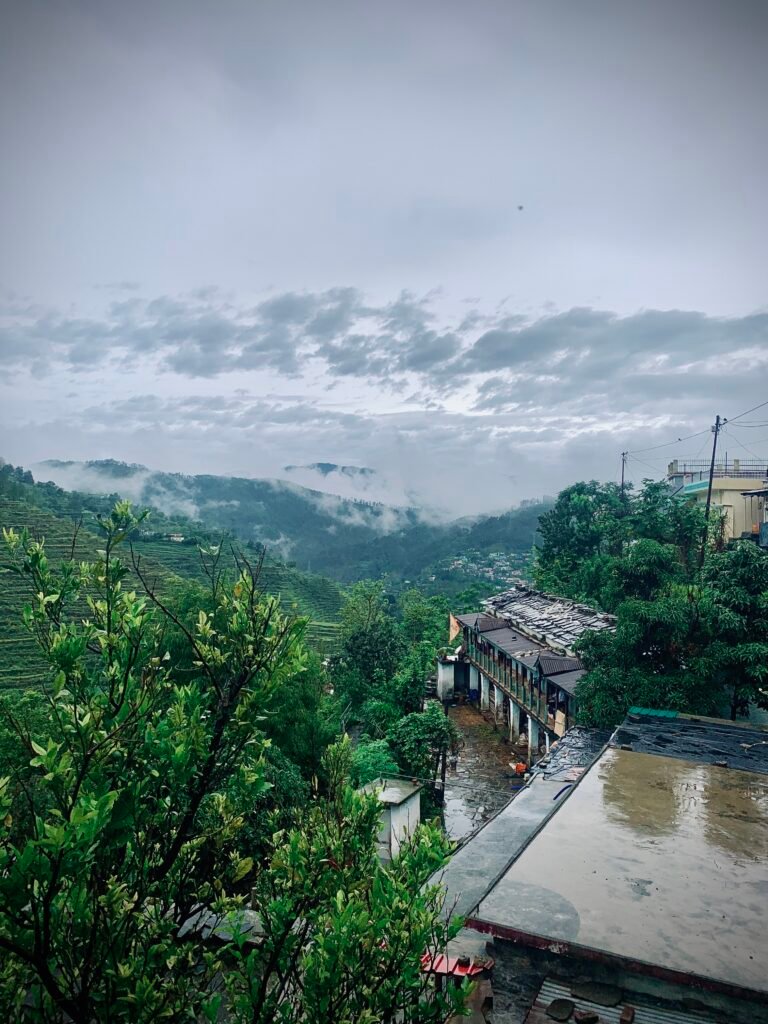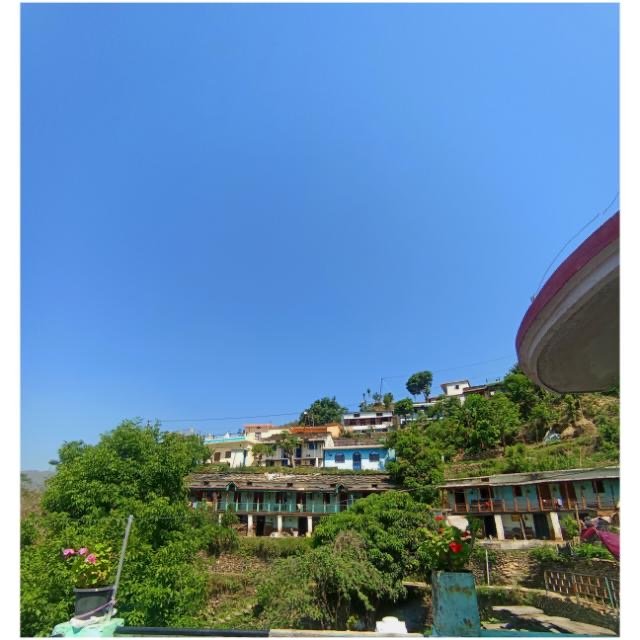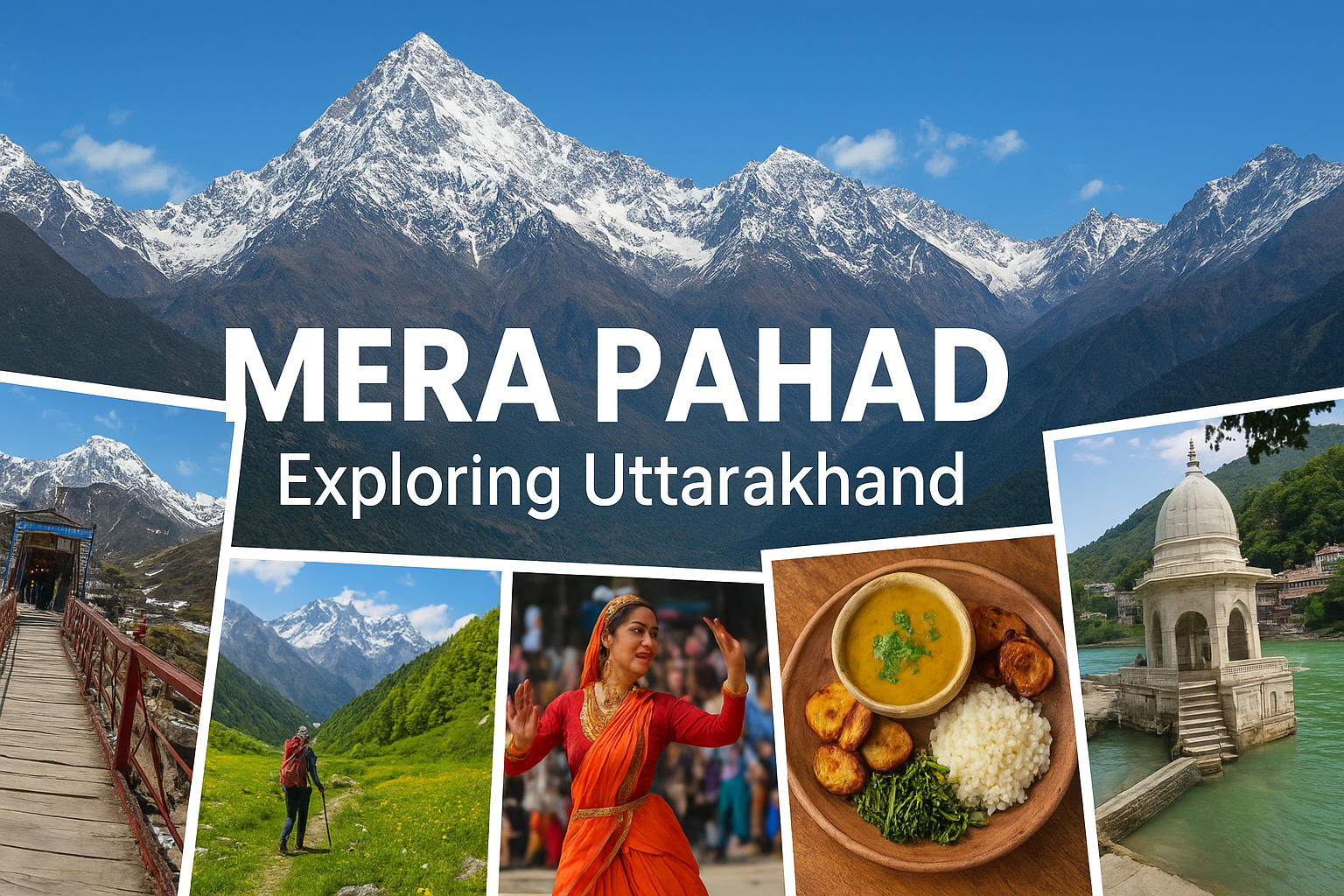Why merapahad exists ? My name is sujal rawat and honestly, I never thought I would be writing something like this. Writing an “about me” page sounds simple, right? Just list achievements, tell who you are, and be done with it. But that’s not me. I’m not here to sound perfect. I just want to speak the way my heart feels, even if it comes out raw, messy, or too emotional. Because that’s what Merapahad is — real.

Growing Up in the Hills
I was born in Uttarakhand, in a small village wrapped between mountains, green fields, and rivers that sang their own songs. Life there was not easy, but it was pure. Simple. Beautiful in its own way.
I still remember mornings in the village. The sound of temple bells carried by the wind, cows walking towards the fields, and smoke curling out of every home’s chulha. The smell of fresh rotis mixed with the cool mountain breeze — if you’ve lived in the hills, you know that feeling.
Evenings were magical. The sun would dip behind the ridges, the whole sky turning golden and then slowly blue. We would all sit together near the fire. My grandmother had this habit — she would tell stories. Not just fairy tales, but stories of gods who once walked our paths, of spirits who lived in forests, of ancestors who fought to protect the land. As kids, we didn’t think much. But now, when I look back, I realize those stories shaped who I am.
School was a different kind of adventure. It wasn’t like kids have today. No buses, no shortcuts. We walked. Long paths through forests, across small rivers, muddy tracks in the rainy season. Back then, it was tiring. Today, I smile when I think of it. Those walks made me strong. They taught patience, discipline, and the value of small victories.
And then there were the festivals. Nanda Devi mela, local jatras, weddings that turned into week-long celebrations — these weren’t “events.” They were life. Imagine the sound of dhols echoing across valleys, people dancing without a care, women singing folk songs that carried generations of memory. Those moments stay with me even now, living far away.

Leaving Home
Like many pahadi kids, I eventually left the village. For studies, for work, for the so-called “better life.”
The city welcomed me. It gave me comfort, opportunities, and money. But it also took away something I can never replace. The silence of the mountains. The peace of sitting by a river with no sound except water and birds. The sense of belonging that only your own land can give.
Every time I went back, something had changed. Another house locked, abandoned. Another field lying dry because no one was left to farm it. Another friend gone to Dehradun, Delhi, or even further.
The elders would smile when they saw me. They would bless me. But behind their smiles was a quiet question: “Will you come back? Will anyone come back?”
That question never leaves me.
The Birth of Merapahad
I’m not a policymaker. I’m not a big leader. I can’t stop migration with one decision. But what I can do… is write.
I can share what it means to be pahadi. I can keep our stories alive. I can remind people that Uttarakhand is not just a tourist spot — it’s a living culture.
That’s why Merapahad was born.
Not because I wanted fame. Not because I wanted to be a “blogger.” But because I wanted to write about:
• The culture we grew up with.
• The deities and festivals that shaped us.
• The treks like Rudranath that test your spirit.
• The temples like Golu Devta, Maa Dhari Devi, Surkanda Devi, and Neem Karoli Baba that keep our faith alive.
• The pain of migration, told not in numbers but in emotions.
For me, Merapahad is not just about travel. It’s about memory. About roots. About not letting go.
Lessons from the Mountains
The mountains are my teachers.
They taught me patience. Every climb takes time. You can’t rush.
They taught me humility. No matter how strong you are, the mountain is stronger.
They taught me hope. After every storm, the peaks shine again in sunlight.
I felt it during treks. Rudranath especially — the silence there speaks louder than any words. It’s like the forest itself whispers to you.
I felt it at Golu Devta’s temple, reading the letters pinned by devotees. Each one a prayer, a plea, a story. Faith becomes visible there.
At Surkanda Devi, the climb is tough, but when you reach, the view feels like a blessing, like the goddess herself saying, “It was worth it.”
At Neem Karoli Baba’s temple in Nainital, I felt something different — an energy, an unconditional faith that flows through people.
These are not just “places to visit.” They are part of us, part of our collective memory.
Who Am I, Really?
I’m not a professional writer. I’m not a travel influencer. I don’t even try to be.
I’m just a pahadi guy —SUJAL RAWAT — who grew up eating kafal from trees, listening to folk songs at village fairs, running barefoot in fields, and sitting by the fire with my grandmother.
Now, I live partly away from the mountains. But every single day, they live in me.
Merapahad isn’t perfect. Neither am I. But both are real. And maybe that’s enough.
What You’ll Find on This Blog
Here’s what I want to give through Merapahad:
• Travel stories the way I felt them, not the way brochures describe them.
• Cultural notes — songs, fairs, rituals that many have forgotten.
• Migration stories — not just statistics, but the pain of locked houses and empty fields.
• Personal memories — because sometimes, even small stories matter.
I don’t write like a guidebook. I write like someone sitting with you over a cup of tea, telling you stories of home.
My Promise
I promise to keep Merapahad real. Always.
No filters. No exaggerations. No selling.
Just truth. Just connection.
Because Uttarakhand is not only “scenic hills” you see in travel ads. It is people. It is gods. It is songs sung in harvest. It is the pain of migration. It is the hope that someday, the villages will come alive again.
In the End
So who am I?
I am a son of the soil. A boy who once ran across terraces, who learned patience on long walks to school, who still hears his grandmother’s stories in the quiet of the night.
I am someone who left the mountains, but never really left.
And that’s what Merapahad is — my attempt to keep the connection alive. Between me and my land. Between my memories and your eyes. Between mountains and a world that sometimes forgets them.
And maybe, if you’re still reading this… the connection has already begun.

